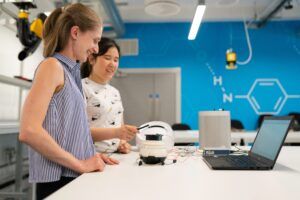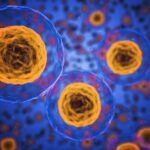Description
Mechanisms driving osteochondral remodeling in a postmenopausal animal model using longitudinal contrast enhanced micro-computed tomography
This PhD project is focused on mechanisms driving osteochondral remodeling in a postmenopausal animal model using longitudinal contrast enhanced micro-computed tomography. It will be based in the Integrative Cartilage Research Group, Department of Biomedical Engineering at The University of Melbourne.
In this project, the student will use and expend preclinical imaging techniques for live imaging of the osteochondral interface. These techniques will be used to explore the genetic and biochemical determinants that mediate subchondral bone and cartilage remodelling in the knee joint of a postmenopausal OA mouse model. The project will also involve image processing of 3D datasets for characterisation of arthritis.
The PhD student will learn to programme in Python to conduct automated image analysis, advanced statistical procedures to study unique patterns of change, lab-based imaging and cellular analysis techniques to evaluate micro-structure and damage. The combination of lab-based and computational analyses will provide high quality evidence to support hypotheses related to mechanisms involved in driving osteoarthritis and the combinatorial role of estrogen loss.
Requirements
In order to qualify for the UoM Postgraduate scholarship,
– you should have a four-year bachelor degree in a relevant discipline which includes a substantial research component equivalent to at least 25% of one year of full-time study and has achieved a minimum weighted average of 75% in the final year subjects or equivalent, or a masters degree in a relevant discipline which includes a substantial research component equivalent to at least 25% of one year of full-time study and achieved a minimum weighted average of 75% or equivalent,
– any prior research experience is an advantage.
Only candidates who qualify for a scholarship will be considered.
Specific Requirements
The project involves time-lapse micro-computed tomography to detect structural and functional changes in arthritis-related joint disorders. You should have a strong background in biomedical engineering, and a keen interest in applying this knowledge into medical challenges. A good understanding of and previous experience in preclinical in vivo imaging is advantageous.
Organisation
University of Melbourne







Leave a Reply